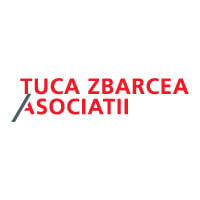

Head of legal and business affairs | PORR Romania



Crina Ciobanu
Head of legal and business affairs | PORR Romania
Bio
Crina Ciobanu, head of legal and business affairs at PORR Romania, is an experienced lawyer with over 17 years of expertise in business law. Since joining PORR in January 2022, she has brought a wealth of experience from her career as a partner at leading Romanian law firms, where she successfully led legal teams through complex transactions and represented clients in high-stakes international disputes involving commercial and construction law.
A graduate of a prestigious law program in the United Kingdom and a member of the Bucharest Bar, Crina is known for aligning legal strategies with business objectives. At PORR, she plays a pivotal role in shaping a unified vision around the company’s core values. Through strategic oversight, she works to optimise operations and strengthen PORR’s position as a trusted partner in the construction sector. Under her leadership, the legal department has become a cornerstone of integrity, dedicated to upholding ethical standards and protecting the company’s interests by minimising risks and addressing potential vulnerabilities.
Outside of her professional responsibilities, Crina values family life, embraces challenges, and is committed to continuous self-improvement. She is inspired by the maxim, ‘justice is the art of good and equity’, reflecting her dedication to a fair and balanced legal practice.
How do you approach managing legal aspects during periods of instability or crises, and how does your legal strategy align with the broader business strategy to ensure the organisation’s resilience?
My approach to managing legal aspects during periods of instability or crises centers on proactive risk management, clear communication, and adaptability. As the legal director of a large construction infrastructure company with projects and sites across the country, I understand that crises—whether caused by economic downturns, regulatory changes, or supply chain disruptions—can significantly impact ongoing projects. Therefore, it is essential to develop a flexible legal strategy that aligns closely with the company’s broader business objectives.
Being part of the top management team – alongside the COO, CFO, and other key executives – allows me to anticipate challenges early and approach issues from a broader perspective. This integration not only enhances my understanding of the business but also centralises common problems across departments, enabling us to craft a comprehensive strategy that aligns legal efforts with the company’s overall goals.
A prime example of this approach occurred during last year’s crisis when the war in Ukraine and the energy crisis led to a sharp rise in construction material prices. We quickly recognised that these price surges could strain operations, resulting in budget overruns and project delays. By working closely with colleagues in finance, procurement, and operations, I was able to foresee these challenges early and develop both immediate and long-term mitigation strategies. This cross-functional collaboration ensured that legal considerations were fully integrated into strategic discussions, reinforcing the company’s resilience.
We immediately reviewed existing contracts to assess price escalation provisions, renegotiated terms with suppliers, and implemented force majeure and hardship clauses where necessary. By working alongside project managers and procurement teams, we made the necessary adjustments while ensuring compliance with regulations. The legal department played a critical role in safeguarding the company’s interests and maintaining project continuity, despite the market volatility.
This proactive, integrated approach strengthens the company’s ability to navigate crises, addressing vulnerabilities – such as contract structures, compliance gaps, or operational risks – before they become critical. By aligning legal efforts with real-time business challenges, we not only manage immediate risks but also support long-term growth and operational stability.
What measures has your company taken to embed sustainability practices into its core business operations, and how does the role of the general counsel contribute to driving and ensuring sustainable practices within the company?
Our company is committed to ecological and environmentally friendly construction practices, the efficient and responsible use of resources and energy, and embracing holistic circular economy principles. We focus on decarbonisation, with the goal of significantly reducing Scope 1, 2, and 3 emissions by 2030. Additionally, we prioritise sustainable construction sites, the use of renewable energy sources, and materials with a lower CO2 footprint.
The role of the General Counsel is essential in driving and ensuring these sustainability practices. As part of the ESG board, I play a strategic role in aligning sustainability goals with legal requirements and corporate policies. We are responsible for ensuring compliance with environmental regulations and promoting ethical behaviour across the company. By integrating sustainability into the company’s overall strategy and operations, the General Counsel helps the organisation achieve its environmental and social objectives.
What emerging technologies do you see as having the most significant impact on the legal profession in the near future, and how do you stay updated on these developments?
In the construction industry, building information modelling (BIM)has become central, benefiting our team at PORR, as demonstrated by our finalist position in the BuildingSMART International Awards 2024. From a legal perspective, BIM introduces complex contract considerations concerning ownership, liability, and data management, owing to the collaborative input of designers, contractors, and clients. Legal agreements must clearly define roles related to intellectual property, data handling, and risk allocation, ensuring that BIM specifications are accurately reflected in contracts to prevent disputes.
Emerging technologies such as artificial intelligence, blockchain, and legal tech platforms also promise to transform the legal profession, particularly in construction. AI can streamline contract management and improve risk assessment, blockchain enhances contract transparency, and legal tech platforms boost efficiency in case and compliance management. To stay current, I attend legal tech events, join webinars, and encourage my team to explore and pilot new technologies, working closely with IT to integrate tools that strengthen both our department and company-wide processes.
Head of legal and business affairs | PORR Romania